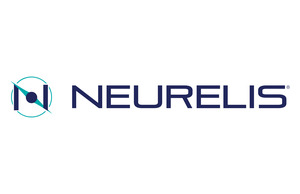- Company promotes Brittany Bradrick to Chief Operating Officer (COO) and Chief Financial Officer (CFO)
SAN DIEGO, Oct. 6, 2022 /PRNewswire/ -- Building on a transformative year of growth and success, Neurelis, Inc., announced today that it promoted former CFO Brittany Bradrick to COO and CFO.
Ms. Bradrick's impact both within Neurelis and among our strategic partners supporting people with epilepsy (PWE) was instrumental to guiding the company's success on multiple fronts. Joining the company late last year and bringing relevant parallels from the work she has done in the area of diabetes, she spearheaded efforts to empower PWE by creating a patient advocacy team to form strong alliances with patient advocacy organizations and to establish direct relationships with PWE. She has further guided cross-functional communication and strategic vision by forming a project management team and investor relations/public relations team and formalizing the organization's 5-year Strategic Plan.
"Empowering people with epilepsy to manage their seizures and have a better quality of life is at the heart of everything Neurelis does," Ms. Bradrick said. "I'm honored to be entrusted with this opportunity to lead these efforts toward fulfilling that mission. We are proud of our dynamic and purposeful employee culture which was exemplified by Neurelis' recent honor of being named one the Best Places to Work in Southern California in 2022."
"In addition to Brittany's financial acumen, her leadership has been instrumental in increasing VALTOCO awareness among people with epilepsy, and specifically those with seizure clusters, strengthening partnerships with the advocacy organizations, establishing strategic structures within the organization, and helping lead Neurelis through this exciting period of growth," added Neurelis CEO, Craig Chambliss.
Neurelis' VALTOCO® (diazepam nasal spray) CIV, a nasal spray for seizure clusters, has transformed from the newest entrant to the clear leader among all approved seizure rescue medications, with 41% share in this important and rapidly growing market. Approved by the U.S. Food and Drug Administration in 2020, VALTOCO is a highly differentiated medication that PWE and/or their care partners can quickly and easily administer during an acute seizure episode (usually characterized by clustering or repetitive seizures). VALTOCO empowers PWE to address these seizures whenever and wherever they occur, allowing them to quickly return to their normal day.
Neurelis continues to bridge health literacy gaps in understanding epilepsy and the importance of seizure action plans by amplifying partnerships in the epilepsy community. Reaching this goal requires more awareness and education in recognizing current gaps in seizure treatment and control. Neurelis is working closely with the Academy of Managed Care Pharmacy, American Association of Neuroscience Nurses, the American Association of School Nurses, Epilepsy Foundation, Child Neurology Foundation, and Lennox-Gastaut Foundation among many others to provide resources for PWE and care partners.
Neurelis, Inc., is a commercial-stage neuroscience company focused on the development and commercialization of therapeutics for the treatment of epilepsy and orphan neurologic disorders characterized by high unmet medical need. In 2020, the FDA approved Neurelis' VALTOCO® (diazepam nasal spray) as an acute treatment of intermittent, stereotypic episodes of frequent seizure activity (i.e., seizure clusters, acute repetitive seizures) that are distinct from an individual's usual seizure pattern in adult and pediatric patients 6 years of age and older. VALTOCO is a proprietary formulation of diazepam incorporating the science of INTRAVAIL®. Intravail's transmucosal absorption enhancement technology enables the noninvasive delivery of a broad range of protein, peptide and small-molecule drugs. In its approval of VALTOCO, the U.S. Food and Drug Administration also granted Neurelis Orphan Drug Exclusivity and recognized VALTOCO's intranasal route of administration as a clinically superior contribution to patient care over the previously approved standard-of-care treatment (a rectal gel formulation of diazepam). For more information on VALTOCO, please visit http://www.valtoco.com/. In addition to VALTOCO, Neurelis is developing NRL-2 for intermittent use to control acute panic attacks, NRL-3 as a noninvasive acute therapy to stop seizures that have progressed to status epilepticus, and NRL-4 as a noninvasive rescue therapy to address the escalation of acute agitation symptoms associated with schizophrenia and bipolar 1 mania in adults. In addition, Neurelis is developing NRL-1049 (previously known as BA-1049), an investigational, pre-clinical stage small molecule Rho kinase (ROCK) inhibitor, for the treatment of cerebral cavernous malformations (CCMS), a rare disorder of the central nervous system (CNS). For more information on Neurelis, please visit http://www.neurelis.com/. For the latest scientific information on VALTOCO, please visit http://www.neurelismedicalaffairs.com/.
VALTOCO® (diazepam nasal spray) is indicated for the acute treatment of intermittent, stereotypic episodes of frequent seizure activity (i.e., seizure clusters, acute repetitive seizures) that are distinct from a patient's usual seizure pattern in patients with epilepsy 6 years of age and older.
WARNING: RISKS FROM CONCOMITANT USE WITH OPIOIDS; ABUSE, MISUSE, AND ADDICTION; and DEPENDENCE AND WITHDRAWAL REACTIONS
- Concomitant use of benzodiazepines and opioids may result in profound sedation, respiratory depression, coma, and death. Reserve concomitant prescribing of these drugs for patients for whom alternative treatment options are inadequate. Limit dosages and durations to the minimum required. Follow patients for signs and symptoms of respiratory depression and sedation.
- The use of benzodiazepines, including VALTOCO, exposes users to risks of abuse, misuse, and addiction, which can lead to overdose or death. Abuse and misuse of benzodiazepines commonly involve concomitant use of other medications, alcohol, and/or illicit substances, which is associated with an increased frequency of serious adverse outcomes. Before prescribing VALTOCO and throughout treatment, assess each patient's risk for abuse, misuse, and addiction.
- The continued use of benzodiazepines may lead to clinically significant physical dependence. The risks of dependence and withdrawal increase with longer treatment duration and higher daily dose. Although VALTOCO is indicated only for intermittent use, if used more frequently than recommended, abrupt discontinuation or rapid dosage reduction of VALTOCO may precipitate acute withdrawal reactions, which can be life-threatening. For patients using VALTOCO more frequently than recommended, to reduce the risk of withdrawal reactions, use a gradual taper to discontinue VALTOCO.
- Hypersensitivity to diazepam
- Acute narrow-angle glaucoma
Benzodiazepines, including VALTOCO, may produce CNS depression. Caution patients against engaging in hazardous activities requiring mental alertness, such as operating machinery, driving a motor vehicle, or riding a bicycle, until the effects of the drug, such as drowsiness, have subsided, and as their medical condition permits.
The potential for a synergistic CNS-depressant effect when VALTOCO is used with alcohol or other CNS depressants must be considered, and appropriate recommendations made to the patient and/or care partner.
Antiepileptic drugs (AEDs), including VALTOCO, increase the risk of suicidal ideation and behavior. Patients treated with any AED for any indication should be monitored for the emergence or worsening of depression, suicidal thoughts or behavior, and/or unusual changes in mood or behavior.
Benzodiazepines, including VALTOCO, can increase intraocular pressure in patients with glaucoma. VALTOCO may only be used in patients with open-angle glaucoma only if they are receiving appropriate therapy. VALTOCO is contraindicated in patients with narrow-angle glaucoma.
VALTOCO is not approved for use in neonates or infants. Serious and fatal adverse reactions, including "gasping syndrome," can occur in neonates and low-birth-weight infants treated with benzyl alcohol-preserved drugs, including VALTOCO. The "gasping syndrome" is characterized by central nervous system depression, metabolic acidosis, and gasping respirations. The minimum amount of benzyl alcohol at which serious adverse reactions may occur is not known.
The most common adverse reactions (at least 4%) were somnolence, headache, and nasal discomfort.
To report SUSPECTED ADVERSE REACTIONS, contact Neurelis, Inc. at 1-866-696-3873 or FDA at 1-800-FDA-1088 (www.fda.gov/medwatch).
Please read full Prescribing Information, including Boxed Warning, for additional important safety information.
Neurelis:
Brittany Bradrick, Chief Financial Officer, +1 858 251 2135
Media:
Erich Sandoval, Finn Partners, + 1 917 497 2867
SOURCE Neurelis, Inc.

WANT YOUR COMPANY'S NEWS FEATURED ON PRNEWSWIRE.COM?
Newsrooms &
Influencers
Digital Media
Outlets
Journalists
Opted In





Share this article